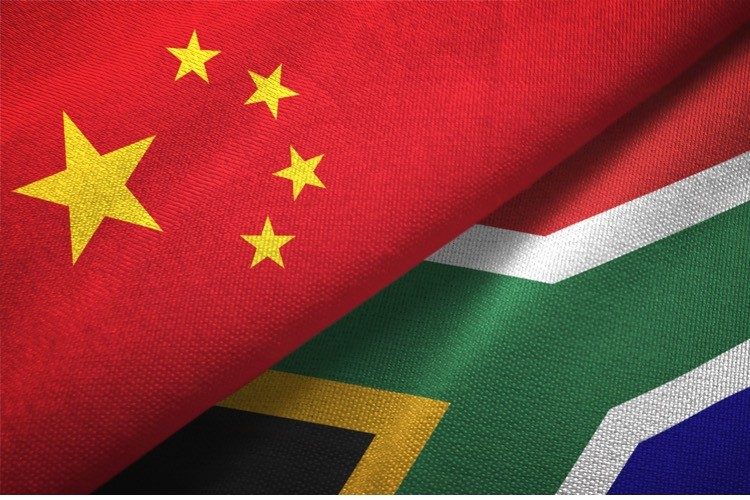
The reasons why Africa has elected to partner with China on so many levels are crystal clear and perfectly logical. Aside from unconditional soft loans and access to capital, quick delivery of services and cheap goods, and funding of peacekeeping, African leaders look to China to provide political recognition and legitimacy. In addition, they believe their economies can only benefit from intervention by a nation who managed to “lift itself out of poverty.” To boot, unlike the United States and other Western governments, it would appear that China is the type of economic partner who engages without condescendingly preaching good governance.
The words of Congolese President Denis Sassou Nguesso seem to echo African sentiment: “The Chinese and African peoples throughout history have experienced almost similar situations … and today they have chosen to be on a journey together for development, economic and social well-being.”
Chinese investment in Africa is equally understandable, as the continent is estimated to contain 90 percent of the world’s supply of platinum and cobalt, half its gold, two-thirds of its manganese, and 35 percent of its uranium. Not only does Africa present China with a fundamental base of raw materials and the potential to achieve exceptional returns on investment (as an emerging market), it positions the Chinese government to expand its global political sphere of influence.
On the financing front, investment isn’t limited to mining and oil, but it appears to incorporate practically every market sector of Africa, including utilities, telecommunications, port construction, and transportation. Since a large number of Chinese firms are state-owned and in a position to offer substantial subsidies, it’s no surprise that they have a remarkably favorable edge in the contract procurement process in most African countries.
As far as political influence is concerned, China’s attempt to deepen relations and cooperation with Africa have largely taken the form of training politicians and media elites, based on the assumption that China’s remarkable economic increase is largely a result of its communist political system. In South Africa specifically, the Chinese Communist Party constructed and currently supports a training school in Venterskroon in the Northern Province. Patrick Heller, a well-known South African analyst and a professor of social sciences, suggests that the ruling African National Congress (ANC) sees the Chinese Communist Party as a model for maintaining control over the country as a de facto one-party state and promoting anti-Western feeling among government elites.
At this point it would be worth referring to a revealing “policy discussion” document that the ANC unveiled in 2015. The document paid tribute to Russia’s Vladimir Putin and likened China to a “guiding lodestar,” revering the Chinese economic approach and consequent growth as a “triumph of humanity over adversity” and proclaiming China “the hope for further possibilities of a new world order.” One would be justified in suggesting that this exposition bears witness to considerably effective “political training” on the part China — especially where Nelson Mandela’s successors are concerned. After all, according to the content supplied by the ANC’s international relations leadership, the United States is pursuing a “destabilization strategy against China, Russia and Latin America” and is engaged in some global conspiracy to supress “progressive” values. Arguably, manifestos such as these don’t inspire much hope in leadership for a number of South Africans.
According to China Labor Watch’s 2019 report titled “The Dark Side of the Glittering World,” only a small number of citizens became rich with the growth of China’s economy over the past 30 years. In addition, it’s a well-documented fact that China’s abundant low-skilled workers are moving off the payrolls of state-owned enterprises in an attempt to establish sustainable livelihoods. This makes it difficult to understand how the ANC’s core values — which supposedly rest upon principles such as individual rights — are completely aligned with China’s to the point of hailing China as a “messiah.” Could this be indebtedness talking? After all, the ANC entered an alarmingly imbalanced bilateral trade agreement that features an overwhelming Chinese export of manufactured products to South Africa in exchange for an essentially exclusive import of primary products.
History dictates that communistic aid and influence is at the very core of the ANC’s existence. As John Battersby of The Christian Science Monitor noted in Lusaka in 1990:
The sudden collapse of Marxism-Leninism in Eastern Europe is reducing international support for the African National Congress (ANC). The Soviets alone will continue to support the ANC, but they will follow increasingly their own political agenda. The swiftness of the changes in Eastern Europe has left socialist-oriented organizations like the ANC and its communist alliance partner — the South African Communist Party (SACP) — in a state of future shock. International pressure on the ANC was augmented this week when a close ally, the South-West Africa People’s Organization (SWAPO), dropped all reference to Marxism, advocating multiparty democracy and a market economy geared to attract foreign investors.
In January 2020, the SACP’s “New Year’s Message” to the nation was full of clichés and hyperbole regarding the benefits of communism, which they plan on implementing (presumably through the ANC). It promised a never-ending revolution against capitalist exploitation while urging unions to double their efforts in preventing the resurgence of neo-liberal practices such as private profiteering, exploitation, and associated wealth-accumulation. However, when state-owned enterprises extend beyond key sectors such as electricity, transportation, and telecommunications and an affirmative-action policy excludes the white capitalist minority but the unemployment rate is still horrendous and state-owned enterprises are in constant need of bailouts, one would think the ANC would ask, “Is communism really the answer for South Africa?”




